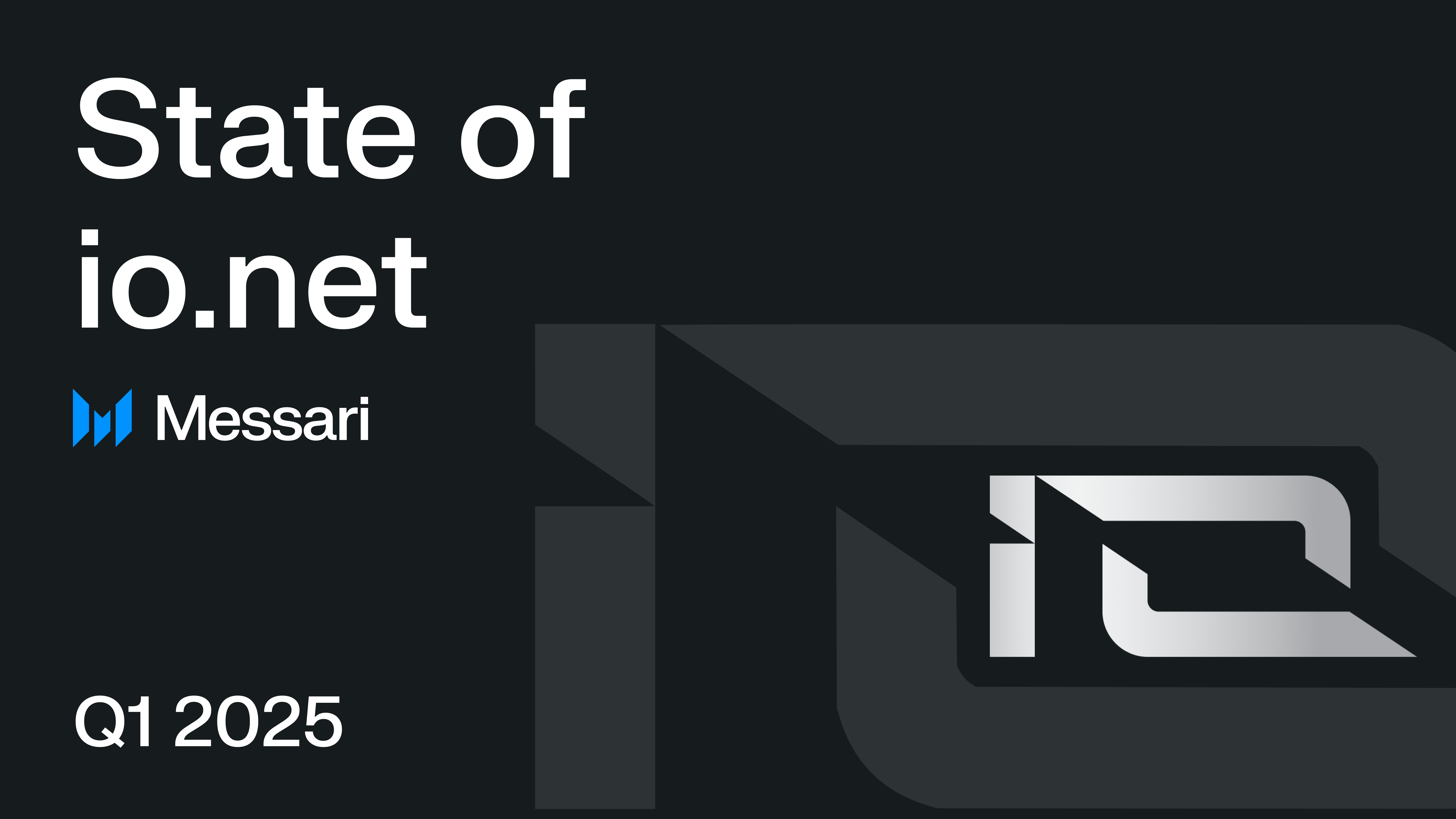PlayFi Collaborates with Industry Leaders to Advance Gaming Ecosystem with AI and Blockchain
Monday, June 10, 2024 1:35 PM
161

PlayFi, a gaming-centric blockchain platform, has partnered with four industry leaders to enhance the gaming ecosystem with AI and blockchain technology. The collaborations with Aethir, MultiversX, Squid, and Matter Labs aim to optimize GPU resources, secure data storage, facilitate token swaps, and leverage Layer-2 solutions for a seamless gaming experience. These partnerships are expected to benefit both developers and players by creating a more interconnected and immersive gaming environment.
Buy Now at
Related News

5 days ago
Sungkyunkwan University’s AIM Lab Adopts Theta EdgeCloud for AI Research AdvancementSungkyunkwan University’s AI & Media Lab (AIM Lab), led by Professor Sungeun Hong, has become the 32nd academic institution globally to adopt Theta EdgeCloud, a decentralized GPU infrastructure tailored for AI and machine learning research. This partnership will significantly enhance the AIM Lab's capabilities in areas such as multimodal learning, domain adaptation, and 3D vision. Notably, their recent work, supported by Samsung, titled "Question-Aware Gaussian Experts for Audio-Visual Question Answering," has been accepted as a Highlight Paper at CVPR 2025, one of the most prestigious AI conferences. The integration of Theta EdgeCloud will allow researchers to access high-performance GPU resources on demand, facilitating faster iterations while reducing costs.
Professor Hong, an expert in multimodal AI and robotic perception, emphasizes the advantages of Theta EdgeCloud in providing the necessary computing flexibility to advance their research. The AIM Lab's focus on vision-language modeling and privacy-preserving domain transfer will benefit from the decentralized architecture, enabling rapid training and evaluation of models. The collaboration with Samsung further strengthens the lab's research output, showcasing a strategic relationship that enhances the development of impactful AI technologies.
The AIM Lab's recent achievements, including the innovative QA-TIGER model for video question answering and a memory-efficient attention mechanism for image segmentation, highlight the lab's commitment to cutting-edge research. By joining a network of esteemed institutions leveraging Theta EdgeCloud, such as Stanford and KAIST, Sungkyunkwan University is poised to lead in the advancement of AI innovation. This partnership not only accelerates research but also positions the AIM Lab at the forefront of developing socially relevant AI applications, demonstrating the power of academic-corporate collaboration in the tech landscape.

9 days ago
io.net Reports Revenue Growth Amid Market ChallengesIn the latest quarterly report, io.net has demonstrated significant growth in revenue, achieving an impressive 82.6% increase, which brought its total revenue to $5.7 million. This surge in revenue is particularly noteworthy given the broader contraction in the cryptocurrency market, where the market cap of its IO token plummeted by 71.4% to $108 million, alongside a 74.9% drop in token price. Despite these challenges, io.net has successfully integrated with various AI and compute-focused platforms, including partnerships with Zerebro, KREA, and Injective, aimed at enhancing decentralized GPU compute capabilities for applications in AI and DeFi.
The infrastructure of io.net, which is built on a decentralized network of GPUs and CPUs, allows for scalable access to compute resources, particularly for machine learning and AI applications. The platform supports a wide array of machine learning frameworks, ensuring flexibility and efficiency in resource allocation. However, the average daily verified compute resources have seen a decline, with verified GPUs and CPUs down 11.1% and 4.5% respectively. This reduction reflects ongoing supply-side challenges and a decrease in token incentives, which has impacted the overall activity within the network.
Despite the mixed performance metrics, io.net has maintained a steady pace of development, with numerous collaborations aimed at expanding its ecosystem. The partnerships formed in Q1 2025, including those with Alpha Network and Mira Network, highlight io.net's commitment to enhancing decentralized AI infrastructure. As the project continues to refine its economic models and expand its network capabilities, it remains a key player in the evolving landscape of decentralized compute resources, even amid a challenging market environment.

9 days ago
Ben Goertzel: Pioneering Decentralized AI for a Better FutureBen Goertzel, a pioneer in artificial intelligence, has been advocating for decentralized AI since he wrote his first line of code 30 years ago. As the world stands on the brink of achieving Artificial General Intelligence (AGI), Goertzel emphasizes the importance of decentralization in ensuring that this powerful technology benefits humanity rather than serving centralized powers. At the recent Consensus conference in Toronto, he expressed optimism that AGI could be launched within the next one to three years through his project, SingularityNET, which aims to create a global marketplace for AI services. The project has made significant strides, including partnerships with Mind Network and Filecoin Foundation, a $53 million investment in a modular supercomputer, and a token merger with Ocean Protocol and Fetch.ai.
Goertzel's vision for decentralized AI is rooted in his early experiences with the internet, which he initially saw as a decentralized platform. However, he notes that the rise of tech giants like Google and Facebook has led to a more centralized internet, which undermines the foundational principles of decentralization. He argues that for AGI to be a force for good, it must be built on decentralized architecture from the outset. This philosophy is reflected in the design of SingularityNET, Hyperon, and the upcoming ASI Chain, which is tailored for decentralized AI applications. Goertzel believes that the trajectory of the post-AGI era will significantly differ based on the role of decentralized ecosystems in its development.
In addition to his work in AI, Goertzel has a history of exploring decentralized money concepts dating back to the 90s. Although he and his peers initially dismissed the practicality of decentralized transactions due to concerns over speed and cost, the emergence of Bitcoin has validated some of his early ideas. He humorously reflects on the missed opportunities of that era, acknowledging that their lack of business acumen prevented them from envisioning the darker applications of decentralized money. Today, Goertzel's commitment to decentralized AI continues to gain traction, positioning him and his initiatives as key players in the evolving landscape of technology and governance.

13 days ago
Investors Eye GRASS and PI Crypto Tokens Amid Market LiquidationsInvestors are currently focused on the GRASS and PI crypto tokens, which are making headlines due to their unique value propositions. The ongoing presale of Best Wallet has also garnered attention, raising over $12 million. In the past 24 hours, perpetual crypto exchanges like Binance, Bybit, and OKX have liquidated over $665 million in leveraged positions, affecting more than 153,000 traders. Despite this turmoil, many traders remain optimistic about GRASS and PI, viewing them as potential breakout tokens for Q2 2025. Notably, PI crypto has surged 80% since early April, while GRASS has increased by 140% since its all-time low in late October 2024.
GRASS is a decentralized layer-2 platform built on Solana, supported by prominent venture capitalists such as Polychain Capital and Tribe Capital. It allows users to monetize idle internet bandwidth, which is crucial for AI model training. The platform has facilitated the scraping of an impressive 57 million GB of public web data in Q1 2025 alone. Participants earn GRASS points, convertible to GRASS tokens, and the platform has seen a significant increase in node operators, indicating growing interest and adoption. Analysts are ranking GRASS among the top cryptocurrencies to explore, highlighting its potential in the AI and decentralized physical infrastructure network (DePIN) sectors.
On the other hand, Pi Network is making strides toward decentralization, having recently disabled its central node, thus empowering its community of over 60 million users. Despite facing skepticism regarding its legitimacy, Pi Network's mainnet launched in February 2025, and the price of PI crypto has fluctuated significantly since then. As both GRASS and PI continue to evolve, investors are advised to conduct thorough research before making investment decisions. Furthermore, the Best Wallet presale is generating excitement, with its features and security measures positioning it as a strong competitor in the crypto wallet space.

17 days ago
Amp and Aethir Shine Amidst Crypto Market CoolingIn a cooling crypto market, Amp (AMP) and Aethir (ATH) have emerged as standout performers, each experiencing a notable 16% increase in value. Amp is currently valued at $0.0051, buoyed by strong bullish momentum supported by key Exponential Moving Averages (EMAs) and favorable trading signals from indicators like MACD and RSI, despite warnings of overbought conditions. Meanwhile, Aethir, which focuses on AI-driven blockchain solutions, has surged to $0.052, breaking past significant resistance levels and maintaining bullish optimism, although the overbought RSI suggests that traders should remain vigilant.
The divergence in the crypto market is evident as Helium (HNT) faces downward pressure, trading at $4.00 and struggling below the critical 200-day EMA. This situation poses a risk of further declines if it breaches the 100-day EMA support at $3.83. The contrasting trajectories of Amp and Aethir against Helium highlight the persistent volatility and innovation within the digital asset market, prompting traders to balance ambition with risk management strategies.
As traders navigate these turbulent waters, the resilience of Amp and Aethir underscores the potential for growth even amid market stagnation. Investors are encouraged to monitor key technical indicators closely, particularly EMAs and RSI levels, to identify optimal entry points and manage risks effectively. The ongoing developments in these projects reflect the dynamic nature of the cryptocurrency landscape, where innovation continues to drive interest and investment opportunities.

18 days ago
Solana's Recovery and the Rise of AI-Driven Projects Bittensor and UnilabsSolana (SOL) has shown a remarkable recovery, bouncing back 90% from its lowest point this year, yet it remains constrained below the critical resistance level of $180. Analysts are optimistic, suggesting that the Solana price could be on the verge of a significant breakout, particularly as many SOL meme coins have recently surged. The current market sentiment is buoyed by strong fundamentals and an upward trajectory, with SOL hovering around the $170 mark. A decisive move above the $180 resistance could pave the way for a potential rise towards $200 and beyond, possibly reaching levels around $250.
In the midst of this, Bittensor (TAO) has emerged as a notable player, maintaining a steady performance while other cryptocurrencies, including Bitcoin (BTC), have struggled. The interest in Bittensor is largely driven by its innovative approach to decentralized AI, which has gained traction following high-profile events, such as Donald Trump's attendance at a crypto and AI innovators dinner. Currently trading around $457, Bittensor has demonstrated resilience, holding onto gains and reflecting a growing market confidence in projects that integrate blockchain technology with AI.
Meanwhile, Unilabs (UNIL) is gaining momentum as a compelling alternative for investors looking to diversify from traditional layer-1 networks like Solana. With a focus on merging blockchain transparency with AI infrastructure, Unilabs is positioning itself as a leader in the DeFi and AI space. Its innovative model, which includes a token-based incentive system, aims to attract users and developers alike. As Solana's growth stalls, Unilabs presents a unique opportunity for traders, potentially redefining the standards for DeFi AI platforms in a rapidly evolving crypto landscape.
Signup for latest DePIN news and updates